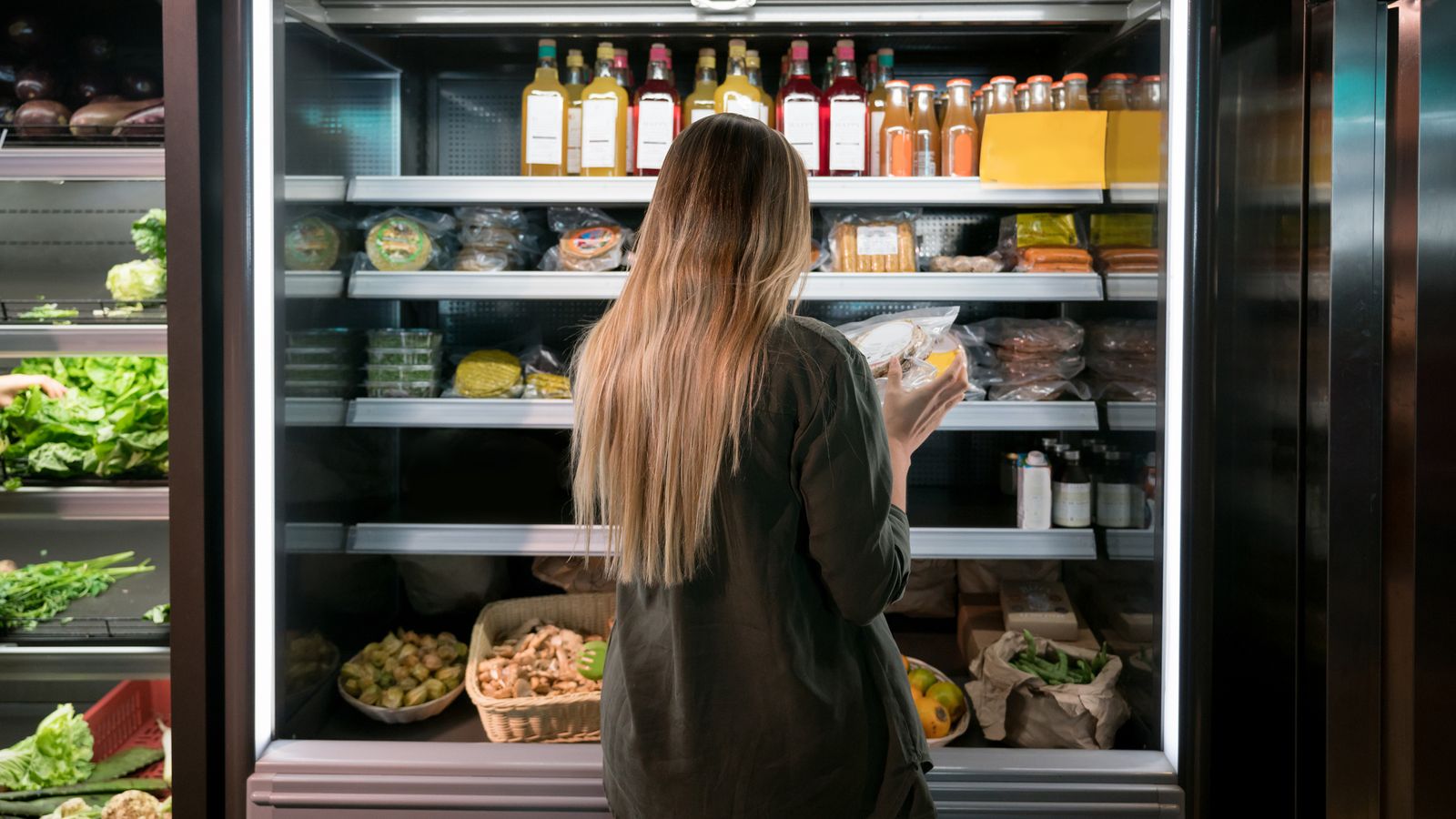Sales in shops have slowed significantly as households grapple with the rising costs of living, according to the British Retail Consortium (BRC).
Retail sales for March rose by 3.1% – slipping back from 6.7% in February, its latest data shows.
This is the lowest figure so far this year and a 0.4% drop compared with the same month last year.
It comes as millions of Britons face higher energy bills and national insurance contributions.
The BRC said that although sales are higher than last year this likely reflects higher prices rather than Britons shopping more.
Helen Dickinson, chief executive of the BRC, said: “The rising cost of living and the ongoing war in Ukraine has shaken consumer confidence, with expectations of people’s personal finances over the next 12 months reaching depths not seen since the 2008 financial crisis.
“Furthermore, households are yet to feel the full impact of the recent rise in energy prices and national insurance changes.
Cost of living: Real wages fall by 1% as pay fails to keep up with inflation
Banks cut mortgage offers for home buyers as they revise affordability tests amid cost of living crisis
Food bank providers ‘deeply concerned’ about suffering across UK amid ‘ relentless’ demand
“Ultimately, consumers face an enormous challenge this year, and this is likely to be reflected in retail spend in the future.”
Follow the Daily podcast on Apple Podcasts, Google Podcasts, Spotify, Spreaker
Don Williams, retail partner at KPMG, said the slower rate of sales in March suggested “clouds on the horizon as household budgets come under pressure from rising costs, an increasing tax burden and competition from holidays”.
“Additionally, retailers are facing their own battle with rising costs and inflation, and are walking a tightrope between absorbing rising costs themselves or passing these on to consumers,” he added.
Food sales for the month fell by 2.6% year-on-year and online sales for non-food items also plummeted by 29% – compared with growth of 64.7% in March 2021.
Susan Barratt, chief executive officer of the Institute of Grocery Distribution said the figures were higher last year when lockdown restrictions started to ease.
“Easter was also earlier and we’re yet to see holiday spending ramp up this year,” she said.






















